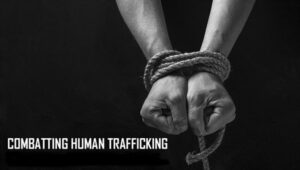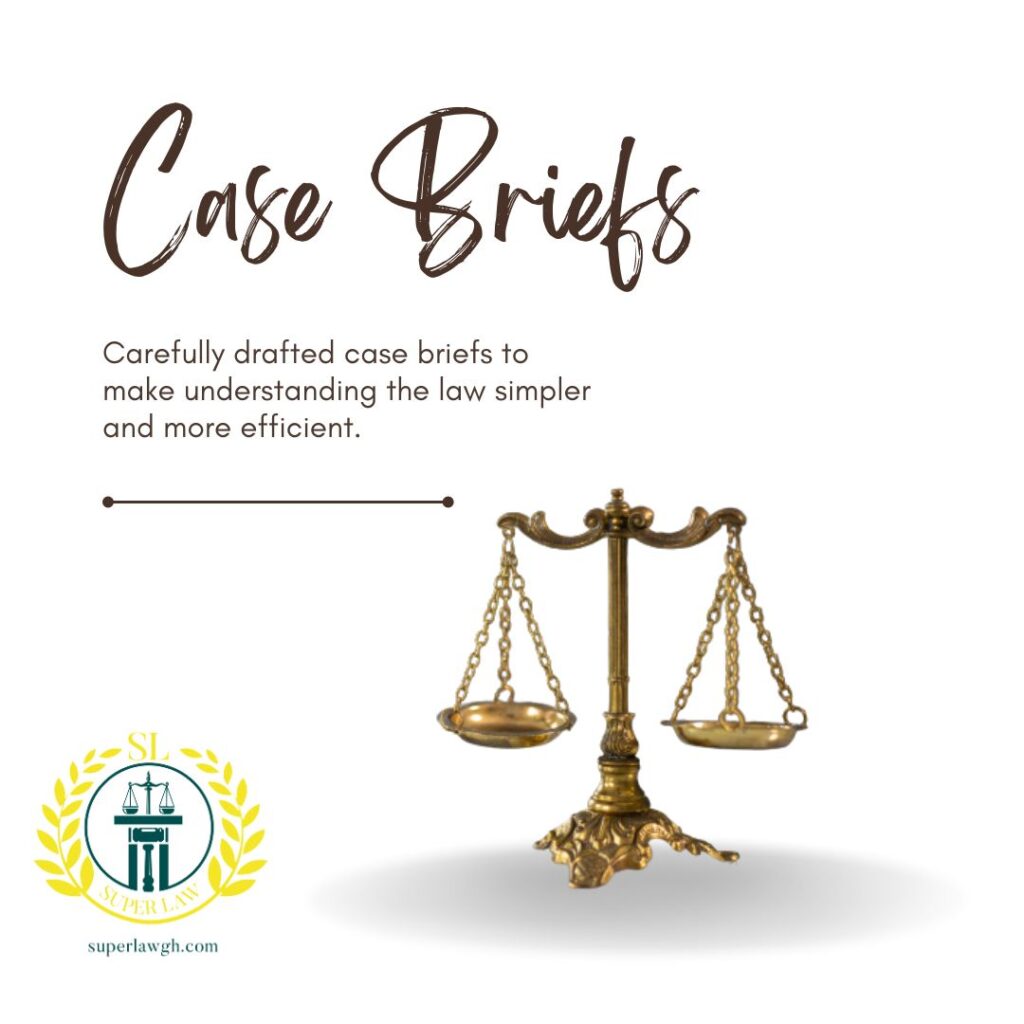The Achimota Circuit Court has convicted two persons for trafficking two ladies from Nigeria to Ghana and compelling them to engage in prostitution.

Jessica Daniel, also known as Blessing, a 24-year-old hairdresser, and Kelvin Johnson, known as Alaska, a 30-year-old Bitcoin trader, were convicted after they were found guilty at the end of the trial.
The two were held on charges of conspiracy to commit a crime and two counts of human trafficking.
The Court, presided over by Akosua Anokyewaa Adjepong, however, deferred their sentence to today, April 30, 2025, pending the outcome of a pregnancy test for Jessica, the first accused person.
Reading her Judgement on Tuesday, the trial Judge said the Prosecution had been able to establish its case beyond a reasonable doubt after calling three witnesses, while the accused persons also called a witness.
The Prosecution, led by Assistant Superintendent of Police (ASP) Isaac Babayi, earlier told the court that the complainant was Chief Calistus Elozipuwa, a member of the Nigerians in Diaspora Organisation (NIDO), based in Ghana.
The accused persons, now convicts, are Jessica Daniel, 24, hairdresser, and Kelvin Johnson, 30, Bitcoin (BTC) trader, all being Nigerians.
ASP Babayi said on July 1, 2024, the complainant rescued the victims, Gloria Vincent, alias Grace, 20 years, and Gloria Igbetar, alias Diamond, aged 25, who were engaging in prostitution.
When they were questioned, they told the complainant that they were deceived, lured and transported to Ghana from Nigeria by Jessica in January and February 2024, under the pretext of securing them jobs as domestic servants, but ended up forcing them into prostitution.
According to the prosecution, the victims were linked to an agent in Nigeria by Johnson, who picked them up at the lorry station in Accra and took them to an apartment where they stayed and worked as prostitutes for Jessica, who demanded they pay GH¢8,000 each to gain their freedom.
The prosecution told the court that Jessica and Johnson were subsequently arrested by the police.
During the investigation, they admitted having recruited the victims from Nigeria to Ghana for prostitution, the proceeds of which were collected by Johnson and handed to Jessica for safekeeping.
Investigations further revealed that Jessica hid behind Johnson to bring the ladies to Ghana with the excuse that she was afraid they might harm her if they found out that she was their mistress.
The victims have been able to pay GH¢8,000 each to the convicts, which they (convicts) both admitted having received.
What is human trafficking?
The definition of human trafficking is stated under Section 1 of the Human Trafficking Act, 2005 (Act 694). The definition gives the scope of acts which will fall under it and criminalizes all forms of trafficking including sexual exploitation and forced labour.
Section 1—Meaning of trafficking
(1) Human trafficking means the recruitment, transportation, transfer, harbouring, trading or
receipt of persons within and across national borders by
(a) the use of threats, force or other forms of coercion, abduction, fraud, deception, the abuse
of power or exploitation of vulnerability, or
(b) giving or receiving payments and benefits to achieve consent.
(2) Exploitation shall include at the minimum, induced prostitution and other forms of sexual
exploitation, forced labour or services, slavery or practices similar to slavery, servitude or the
removal of organs.
(3) Placement for sale, bonded placement, temporary placement, placement as service where
exploitation by someone else is the motivating factor shall also constitute trafficking.
(4) Where children are trafficked, the consent of the child, parents or guardian of the child
cannot be used as a defence in prosecution under this Act, regardless of whether or not there is
evidence of abuse of power, fraud or deception on the part of the trafficker or whether the
vulnerability of the child was taken advantage of.
Challenges faced in protection of victims
There are challenges faced in the protection of victims of human trafficking. This is because victims usually fear that there is no law that protects them. Victims usually feel indebted to the perpetrators of these acts because they usually cover some basic needs which the victims ordinarily would not have access to. There is also the fear of discrimination.
Remedies provided under Act 694
However, the Act makes accommodation for rescue and rehabilitation of victims. It includes temporary care, counselling and support to reintegrate back into society. It also establishes a fund to support anti-trafficking initiatives.
Any victim can reach out to the Human Trafficking Secretariat, under the Ministry of Gender, Children, and Social Protection for support.
If you have information of trafficking, you have the duty to inform any of the following: the police, the Commission of Human Rights and Administrative Justice, the Department of Social Welfare, the Legal Aid Board, or a reputable Civil Society Organisation.
Source: GNA

